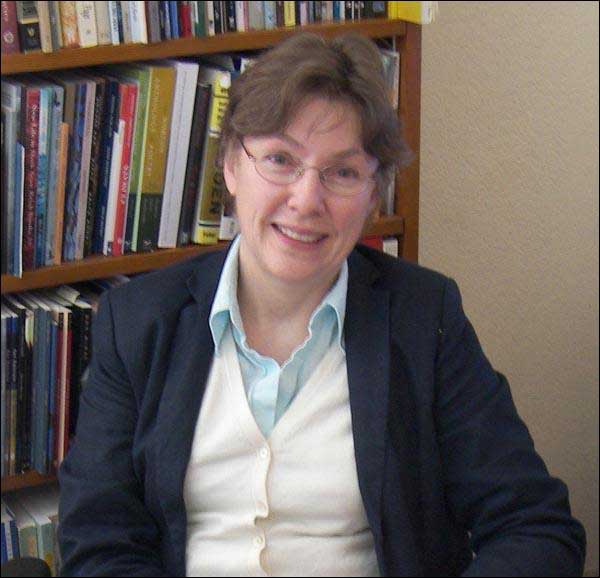Susan Ingersoll (?-)
Susan Ingersoll's poetry "is a strange country/ as dark as sleep/ as far away as dream/” ("Sleepers Awake"). Born on Grand Manan Island in the Bay of Fundy, New Brunswick, to the now deceased Neil Ingersoll and Margaret Harvey, Ingersoll attended Mount Allison University in Sackville, New Brunswick and pursued graduate studies at Memorial University. Former poetry editor of the St. John's literary journal, TickleAce, she is an Associate Professor of English at Memorial University of Newfoundland, where she served on the English Department's Pratt Committee for several years, with responsibility for organizing the Pratt Lectures given by Susan Gubar and Robert Bringhurst.

Now the Moon Appears Among the Lilies
Ingersoll's now the moon appears among the lilies (1998) acts as both "a dreamed and actual landscape" ("home"). While there are only passing references to Newfoundland, in particular St. John's, she creates intersections between imagination and reality that reflect the way in which Newfoundland's culture and folklore often transforms the ordinary into flights of fancy. Ingersoll seems to fear a world where there is "nothing to break this spell/no magic."
Shortlisted for the Writers' Alliance of Newfoundland and Labrador's 1998 Provincial Book Award for Poetry, her book is a complex, delicate and introspective collection oscillating between Newfoundland, New Brunswick, and London, England. Broken into three sections, "Tower," "Sleeping in The Future" and "All in the April Evening," her verse is, as the title implies, intensely impressionistic. The sensual lines often tend to read as private or lyrical poetry; however, Ingersoll asserts: "They're not confessional poems. The voice of the speaker is not necessarily me. I've developed a fictional kind of persona between myself and the speakers in the poems" (Gazette, Sept 17, 1998, p. 7). This disjunction between the poet and the speaker reflects in the wavering and shifting points of view that create a fragmented reading experience. Intensifying these shifts are mystical and fantastical images, resplendent with towers, moonlight, a piano man, fog and Latinized names of flowers. Complementing these motifs, archetypal images reflect explorations of the subconscious and are connected through echoes and clever nuances in setting. In particular, related to both the unconscious and the mystical, there is an atmosphere of fear, mystery and yet solace in the contemplation of a sense of absence, or nothingness, in worlds that can be "whited out" and "a blank." A sense of longing created by missed or even misconstrued encounters haunts some of the pieces, as in a section from "Lunar Changes"
If I were Rapunzel, I whisper,
I’d let my hair down, maybe.
The words die away in the fall to earth.
What? he says.
Overall, her poetry could seem, both in form and content, to be "an illustration /of some obscure device," that, complete with instances of wry humour, snippets of feminism and thought provoking, succinct phrases, makes it an engaging reading experience.
In this mythical world, however, there are stark, sometimes absurd, references to reality, such as a man in orange coveralls tarring his roof in a blizzard so that "pushing the brush across the felted dark/ [he is] paving heaven" ("Advent"). Representations of people who might seem on the social fringes are contextualized to seem mainstream, reflecting the unique, though often sensationalized, representations of Newfoundland, such as "the Itinerant Homicidal Maniac/ the Welfare Woman/the Dead End Kid." Such images of social misfits echo later in the collection in reflections of some of the social and economic inconsistencies of London. Overall, the collection, mostly written in lower case letters with font sometimes italicized to place emphasis on certain ideas or phrases, asks us to explore the interior landscape of who we are, or the "dark membrane between/ourselves and ourselves, behind which we shout" ("Advent").




